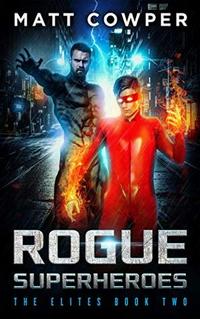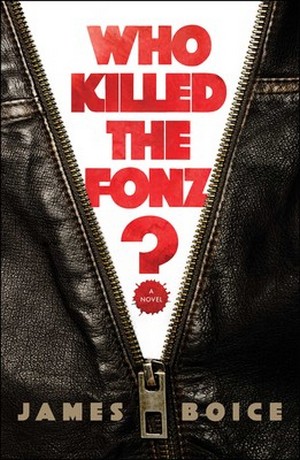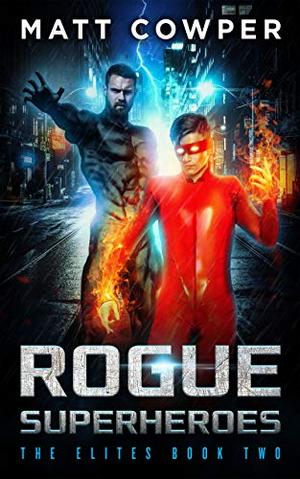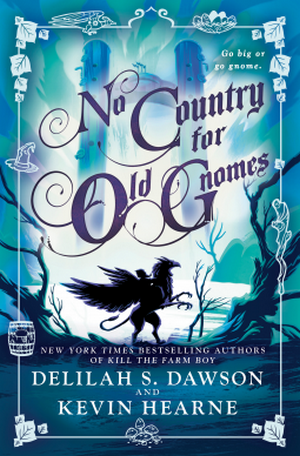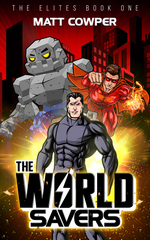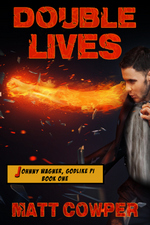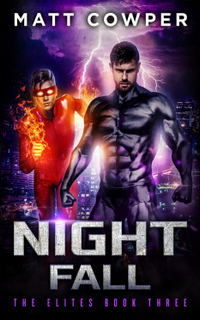 Nightfall
Nightfall
by Matt Cowper
Series: The Elites, #3
Kindle Edition, 412 pg.
2019
Read: July 24 – 26, 2019

With The World Savers, I pictured an ongoing series about The Elites, after Rogue Superheroes, I wondered how he could keep it going after raising the stakes so much. Nightfall answers that question (while ruining my hopes for an ongoing series). Cowper brings this trilogy to a close with a conclusion wraps up the storylines well, provides some closure and moves the characters on to the next step in their lives, all while telling an exciting super-hero story.
As we join the book, things are still influx after Rogue Superheroes, Nightstriker doesn’t trust Blaze the way he should (and the rest of his team do), Gillespie is serving as Interim President (and not liking it), and the possible romantic relationship between Gillespie and Nightstriker hasn’t gone anywhere since that initial conversation, and Blaze is still grieving and dealing with everything he did. But after the first chapter or so, progress is made along these lines and it looks like things might be cooling off for the Elites for a while. There’s still a lot of road to go, but positive and realistic steps are being taken.
Which means, of course, it’s time for their newest nemesis to show up. His name is Black Knight and he comes from the future (or so he says). His purpose in coming back in time is to stop one of the Elites before they become too powerful to be stopped, supposedly the damage he’s wrought on civilization in the future is so great that it can’t be allowed to get to the point where they aren’t bound by any kind of ethical cord. But he’s just one man, what can he do against this super team?
Quite a lot, it seems. Between power, reflexes, strategy and a kind of determination usually reserved for Batman and Nightstriker, Black Knight almost accomplishes his goal in the first battle against the team. Coming up with a way to stop him—for everyone’s sake—the team is going to have to lean on a new friend and ally and follow her to a planet light-years away. The Elites in space and on a planet no one has heard of, battling one of the greatest foes they can imagine. A great way to conclude this trilogy! There were several times when I “knew” how it all was going, and the hard choices that Cowper would have to make about some of his characters—and I was wrong every single time. There were a lot of zigs where I expected zags, and I loved every one of them.
As compelling as all that is, the core of this novel has to do with the reaction of the team to hearing that someone in their midst will become a mass murderer. It puts a strain on all relationships (platonic or otherwise) the team is involved with. There’s some horror, some rebellion, but mostly it’s a resolve to back their teammate and help them avoid the solution. There’s some great fodder for thought about choice, determinism, and morality there—Cowper deftly deals with these ideas while not losing the pace of his story.
It’s pretty exciting, and a great way to approach the book, taking these heroes on an interplanetary adventure. After things die down, The Elites return home to start again and some of the heroes are recognized for the forces of good they’d been. Then we get glimpses of where everyone is going forward to start over—some are taking a path far less traveled others are continuing along similar paths, but with renewed focus.. The emotional arcs are great and just what the fans want to read. I was really impressed with the way that Cowper resolved things and yet planted things to harvest later.
This is the third in a series, and I strongly recommend it be read after books 1 and 2, or you won’t get a lot of it. My appreciation for the series has built with each successive novel and it’s hard to find a lot to fault with this one. Some great emotional beats, great characters and a whole lot of fun and excitement as the Elites try to weed the criminals out of society. I’ve enjoyed this trilogy as a whole, but Cowper pulled out all the stops with this conclusion and really blew me away.
Disclaimer: I received a copy of this novel from the author in exchange for my honest opinion about it.
—–

![]()



